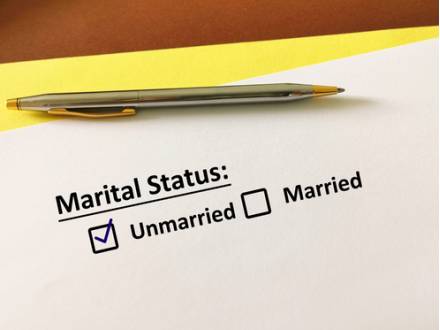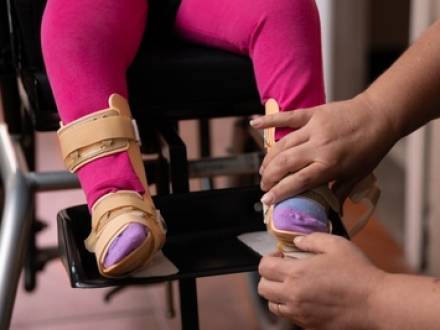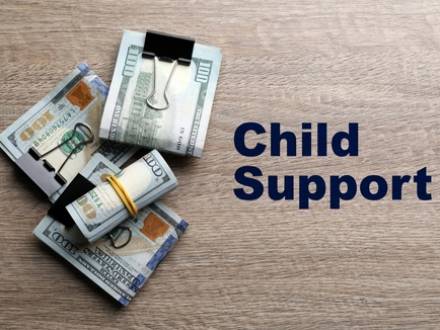630-462-9500
After Hour New Client Telephone Number 630-690-6077
1776 S. Naperville Road, Building B, Suite 202,
Wheaton, IL 60189
Recent Blog Posts
Child Custody for Unmarried Parents in Illinois
 While marriage creates automatic rights and responsibilities when it comes to children, unmarried parents have a unique set of matters to think about when it comes to issues like custody, child support, and visitation. In Illinois, these issues are managed by the Illinois Marriage and Dissolution of Marriage Act, even if you were never married to your child’s other parent. The first step towards dealing with child custody is to understand what the law says and what that means for you.
While marriage creates automatic rights and responsibilities when it comes to children, unmarried parents have a unique set of matters to think about when it comes to issues like custody, child support, and visitation. In Illinois, these issues are managed by the Illinois Marriage and Dissolution of Marriage Act, even if you were never married to your child’s other parent. The first step towards dealing with child custody is to understand what the law says and what that means for you.
Although people still use the terms "custody" and "visitation," Illinois law recognizes child custody under the updated terms of "parental responsibilities" and "parenting time." These terms describe what you, as a parent, need to do for your child together with your child’s other parent.
You can get all the guidance you need with child custody, visitation, paternity, and any other family law issue from our Wheaton child custody attorneys at The Stogsdill Law Firm, P.C.. We work with families from all walks of life and are ready to help you.
Can My Spouse Kick Me Out of the House During a Divorce in Illinois?
 With any divorce comes a great deal of uncertainty. And with uncertainty comes stress. Among your most intense worries may be the uncertainty about where you will live in the future or whether your spouse is legally able to kick you out of the house while your divorce is ongoing.
With any divorce comes a great deal of uncertainty. And with uncertainty comes stress. Among your most intense worries may be the uncertainty about where you will live in the future or whether your spouse is legally able to kick you out of the house while your divorce is ongoing.
If you have concerns regarding your living situation or if your spouse has already begun threatening to kick you out, discuss these concerns with a qualified Wheaton, IL divorce attorney. Your attorney is trained in Illinois divorce law and can ensure that you are aware of your rights and make certain those rights are protected.
At The Stogsdill Law Firm, P.C., we take pride in our stellar reputation in the Illinois legal community. As one of the most prestigious law firms in Wheaton and surrounding DuPage County communities, we have access to the resources that can be the difference maker in a case.
QDROs for Public Employees in Illinois Divorces
 Public employees in Illinois are often covered by government pension plans, which can present a unique challenge when it comes to dividing assets during a divorce. One of the most important tools for dividing retirement accounts in Illinois divorces is the Qualified Domestic Relations Order (QDRO). However, when dealing with pensions and retirement accounts specific to public employees, the process is a bit different than that of a QDRO for a non-state employee.
Public employees in Illinois are often covered by government pension plans, which can present a unique challenge when it comes to dividing assets during a divorce. One of the most important tools for dividing retirement accounts in Illinois divorces is the Qualified Domestic Relations Order (QDRO). However, when dealing with pensions and retirement accounts specific to public employees, the process is a bit different than that of a QDRO for a non-state employee.
In this blog, we will explore how QDROs apply to public employees in Illinois divorces, including how to ensure that you are properly protected when setting up these payment plans. To learn more about your specific case, call our Wheaton, IL divorce attorneys.
What Is a QILDRO?
A Qualified Domestic Relations Order (QDRO) is a legal document that allows retirement assets to be divided in a divorce. It applies to certain types of retirement accounts, including 401(k)s, pensions, and other defined contribution or benefit plans. A QDRO allows a former spouse to receive a portion of the pension or retirement benefits without causing tax penalties or other complications for the original account holder.
Common Joint Custody Scenarios After Divorce
 When parents divorce in Illinois, the court must decide how parenting time and parental responsibilities will be allocated. In many cases, joint custody, known under Illinois law as the shared allocation of parental responsibilities, allows both parents to remain actively involved in their child’s life. While the specific arrangement depends on the family’s circumstances, certain patterns tend to emerge in joint custody cases.
When parents divorce in Illinois, the court must decide how parenting time and parental responsibilities will be allocated. In many cases, joint custody, known under Illinois law as the shared allocation of parental responsibilities, allows both parents to remain actively involved in their child’s life. While the specific arrangement depends on the family’s circumstances, certain patterns tend to emerge in joint custody cases.
As of August 2025, Illinois law continues to prioritize arrangements that serve the child’s best interests, which include maintaining strong relationships with both parents when possible. Our large, well-respected firm has Wheaton child custody lawyers with more than 110 years of combined legal experience.
We can help you understand possible custody scenarios whether you are working toward an agreement in mediation or pursuing a resolution through litigation. Clients consistently say they appreciate the responsiveness of our attorneys and staff, as well as the close communication maintained throughout the process. Call us today at 630-462-9500 to see how we can assist in your case.
5 Facts About Alimony in a 2025 Divorce
 If you are preparing for a divorce in Illinois, the issue of spousal maintenance (also known as alimony or spousal support) may be one of your biggest concerns. Whether you are likely to pay or receive support, it is important to understand how the law works, what courts consider, and how recent updates may impact your case.
If you are preparing for a divorce in Illinois, the issue of spousal maintenance (also known as alimony or spousal support) may be one of your biggest concerns. Whether you are likely to pay or receive support, it is important to understand how the law works, what courts consider, and how recent updates may impact your case.
Whether you anticipate paying or receiving alimony, having an experienced, aggressive DuPage County, IL divorce attorney on your side is an important first step. Here are five essential things to know about spousal maintenance in a 2025 Illinois divorce, particularly in DuPage County.
Illinois Courts Do Not Award Alimony Automatically
Unlike child support, which follows strict formulas when minor children are involved, spousal maintenance is never guaranteed in a divorce. The court must first decide whether one spouse is entitled to maintenance at all. This decision is governed by Section 504 of the Illinois Marriage and Dissolution of Marriage Act (750 ILCS 5/504).
Understanding the Differences Between Mediation and Collaborative Law
 Collaborative law and mediation are two alternative dispute resolution methods that allow couples to resolve divorce issues outside of the courtroom. Although they share common goals, such as reducing conflict, saving time and cost, and maintaining privacy, they differ significantly in approach, structure, and the level of legal involvement. As of July 2025, Illinois courts continue to support both processes, especially because many judges favor out-of-court settlement efforts whenever feasible.
Collaborative law and mediation are two alternative dispute resolution methods that allow couples to resolve divorce issues outside of the courtroom. Although they share common goals, such as reducing conflict, saving time and cost, and maintaining privacy, they differ significantly in approach, structure, and the level of legal involvement. As of July 2025, Illinois courts continue to support both processes, especially because many judges favor out-of-court settlement efforts whenever feasible.
If you are considering divorce and want to understand which process might suit your circumstances best, it is important to speak with a seasoned Wheaton, IL divorce attorney who can explain the pros and cons of each option based on your specific family, needs, financial situation, and goals.
Managing a Disabled Child’s Needs During Divorce
 Parents of children with special needs or disabilities are, statistically, more likely to face divorce. Yet a divorce hardly solves the difficult problems of caring for such a child; in certain cases, divorce can aggravate disagreements about a child’s care and place greater caregiving burdens on parents who are already exhausted and burned out.
Parents of children with special needs or disabilities are, statistically, more likely to face divorce. Yet a divorce hardly solves the difficult problems of caring for such a child; in certain cases, divorce can aggravate disagreements about a child’s care and place greater caregiving burdens on parents who are already exhausted and burned out.
Parents often ask how Illinois courts handle child support, decision-making responsibilities (child custody), and parenting time (visitation) for a child who may need care well into adulthood. Understanding your legal options and obligations is essential to ensuring your child’s needs are met both now and in the future, and our experienced team of Wheaton child custody attorneys is here to help.
Are Family Pets Considered Property in Divorce?
 When spouses divorce in Illinois, deciding who will keep the family dog, cat, or other beloved pet can be a contentious issue. Many people consider their pets to be important and beloved members of their family, but under Illinois law, animals are treated differently than children in divorce proceedings. Our Wheaton, IL divorce attorneys are here to help you understand how the law applies to pets in a divorce. Beyond that, we will help you prepare for the overall process, including any other issues that need to be addressed.
When spouses divorce in Illinois, deciding who will keep the family dog, cat, or other beloved pet can be a contentious issue. Many people consider their pets to be important and beloved members of their family, but under Illinois law, animals are treated differently than children in divorce proceedings. Our Wheaton, IL divorce attorneys are here to help you understand how the law applies to pets in a divorce. Beyond that, we will help you prepare for the overall process, including any other issues that need to be addressed.
How Are Pets Treated in Illinois Divorces?
Under Illinois law, pets are legally considered personal property. This means that, like cars, furniture, or bank accounts, pets are subject to property division during a divorce. However, Illinois has taken steps to recognize the special place pets hold in families. As of July 2025, the Illinois Marriage and Dissolution of Marriage Act (750 ILCS 5/503(n)) continues to allow courts to consider the well-being of companion animals when determining ownership in divorce cases.
Who Pays for Student Loans in a Divorce?
 Student loan debt has become a central issue in many divorces, especially when one or both spouses pursued advanced degrees or took out large loans before or during the marriage. For divorcing couples in DuPage County, the question of who pays for student loans after divorce is not always straightforward. It depends on a range of factors, including when the loans were taken out, how they were used, and how property is divided during the divorce process.
Student loan debt has become a central issue in many divorces, especially when one or both spouses pursued advanced degrees or took out large loans before or during the marriage. For divorcing couples in DuPage County, the question of who pays for student loans after divorce is not always straightforward. It depends on a range of factors, including when the loans were taken out, how they were used, and how property is divided during the divorce process.
Whether you are the spouse who earned the degree or the one who supported your partner’s education, it is important to understand how Illinois divorce courts treat student loan debt. An experienced Wheaton, IL divorce attorney can help you develop a clear financial strategy as you prepare for settlement negotiations or litigation.
Are Student Loans Considered Marital Debt in Illinois?
Under the Illinois Marriage and Dissolution of Marriage Act, property and debts are classified as either marital or non-marital. Only marital property and marital debt are divided during divorce. Non-marital assets and debts typically remain with the spouse who owns them.
Enforcing Child Support Payments After a Divorce or Separation
 Following a separation or divorce, child support payments are essential to ensuring that a child’s needs are met. Unfortunately, not all parents will comply with these court-ordered obligations, and some will deliberately try to avoid paying child support by quitting a job or taking a lower-paying job. Unpaid child support can lead to serious financial hardships for the receiving parent and the child.
Following a separation or divorce, child support payments are essential to ensuring that a child’s needs are met. Unfortunately, not all parents will comply with these court-ordered obligations, and some will deliberately try to avoid paying child support by quitting a job or taking a lower-paying job. Unpaid child support can lead to serious financial hardships for the receiving parent and the child.
Thankfully, Illinois law (Chapter 40, 750 ILCS 5/505) provides a range of enforcement tools to help parents obtain the child support to which they are legally entitled. If you are dealing with partial child support payments, late payments, or deliberate, willful noncompliance, speaking to an experienced Wheaton, IL child support lawyer can make a difference.




















